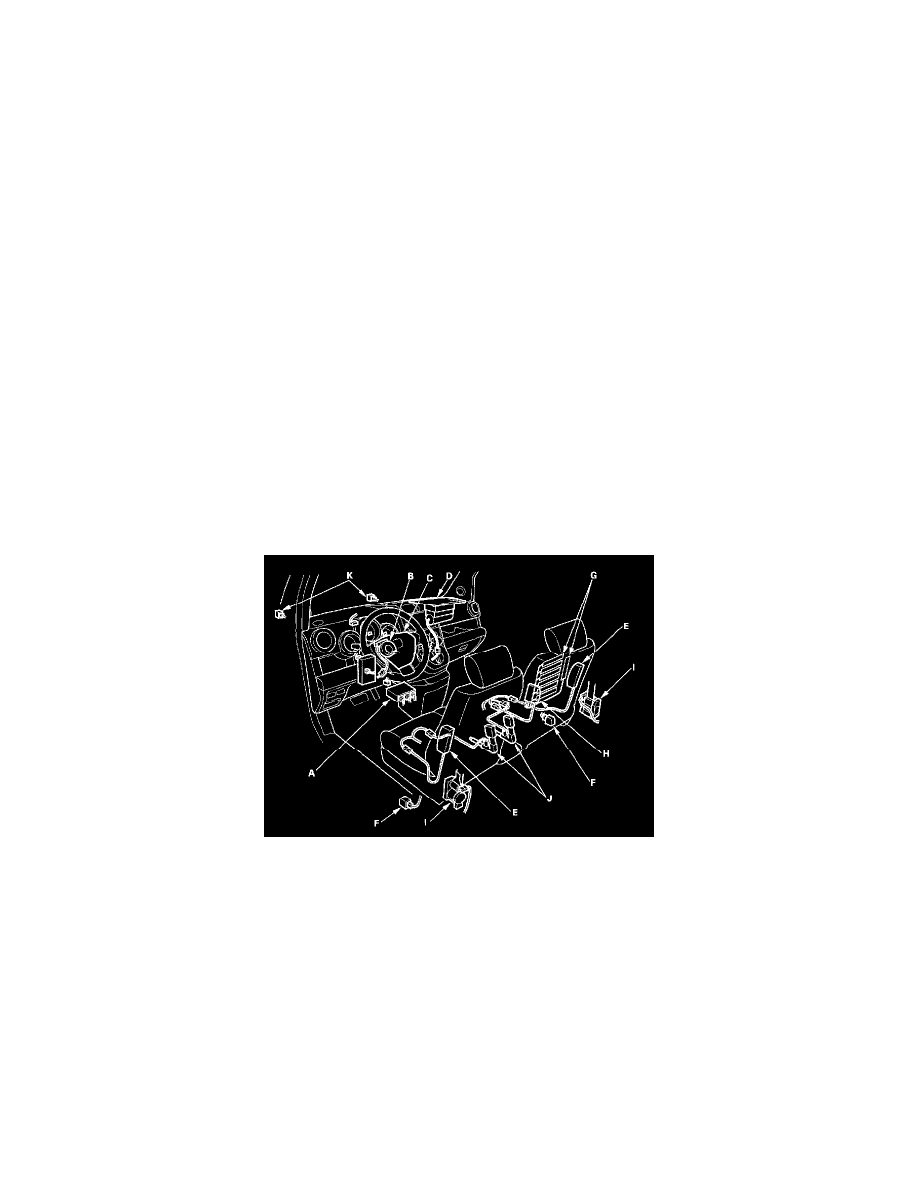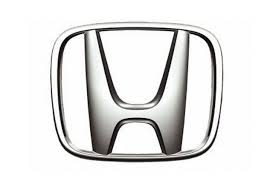Element 4WD L4-2.4L (2004)

Air Bag(s) Arming and Disarming: Description and Operation
SRS Components
SRS Components
Air-bags
The SRS is a safety device which, when used with the seat belt, is designed to help protect the driver and front passenger in a frontal impact exceeding a
certain set limit. The system consists of the SRS unit, including safing sensor and impact sensor (A), the cable reel (B), the driver's airbag (C), the front
passenger's airbag (D), seat belt tensioners (1), seat belt buckle tensioners (J), and front impact sensors (K).
Since the driver's and front passenger's airbags use the same sensors, both normally inflate at the same time. However, it is possible for only one airbag
to inflate.
This can occur when the severity of a collision is at the margin, or threshold, that determines whether or not the airbags will deploy. In such cases, the
seat belt will provide sufficient protection, and the supplemental protection offered by the airbag would be minimal.
Side Airbags
The side airbags (E) are in each front seat-back. They help protect the upper torso of the driver or front seat passenger during a moderate to severe side
impact. Side impact sensors (F) in each door sill and in the SRS unit detect such an impact and instantly inflate the driver's or the passenger's side airbag.
Only one side airbag will deploy during a side impact. If the impact is on the passenger's side, the passenger's side airbag will deploy even if there is no
passenger.
Seat Belt and Seat Belt Buckle Tensioners
The seat belt and seat belt buckle tensioners are linked with the SRS airbags to further increase the effectiveness of the seat belt. In a front-end collision,
the tensioners instantly retract the belt and buckle firmly to secure the occupants in their seats.
OPDS
The side airbag system also includes an occupant position detection system (OPDS). This system consists of sensors (G) and a OPDS unit (H) in the
front passenger's seat-back. The OPDS unit sends occupant height and position data to the SRS unit. If the OPDS unit determines that the front passenger
is of small stature (for example, a child) and the front passenger is leaning into the side airbag deployment path, the SRS unit will automatically disable
the passenger's side airbag. The SRS unit will also disable the airbag when the OPDS detects certain objects on the seat. When the side airbag is
disabled, the side airbag cutoff indicator on the instrument panel alerts the driver that the passenger's side airbag will not deploy in a side impact. When
the object is removed, or the passenger sits upright, the side airbag cutoff indicator will go off after a few seconds, alerting the driver that the passenger's
side airbag will deploy in a side impact.
